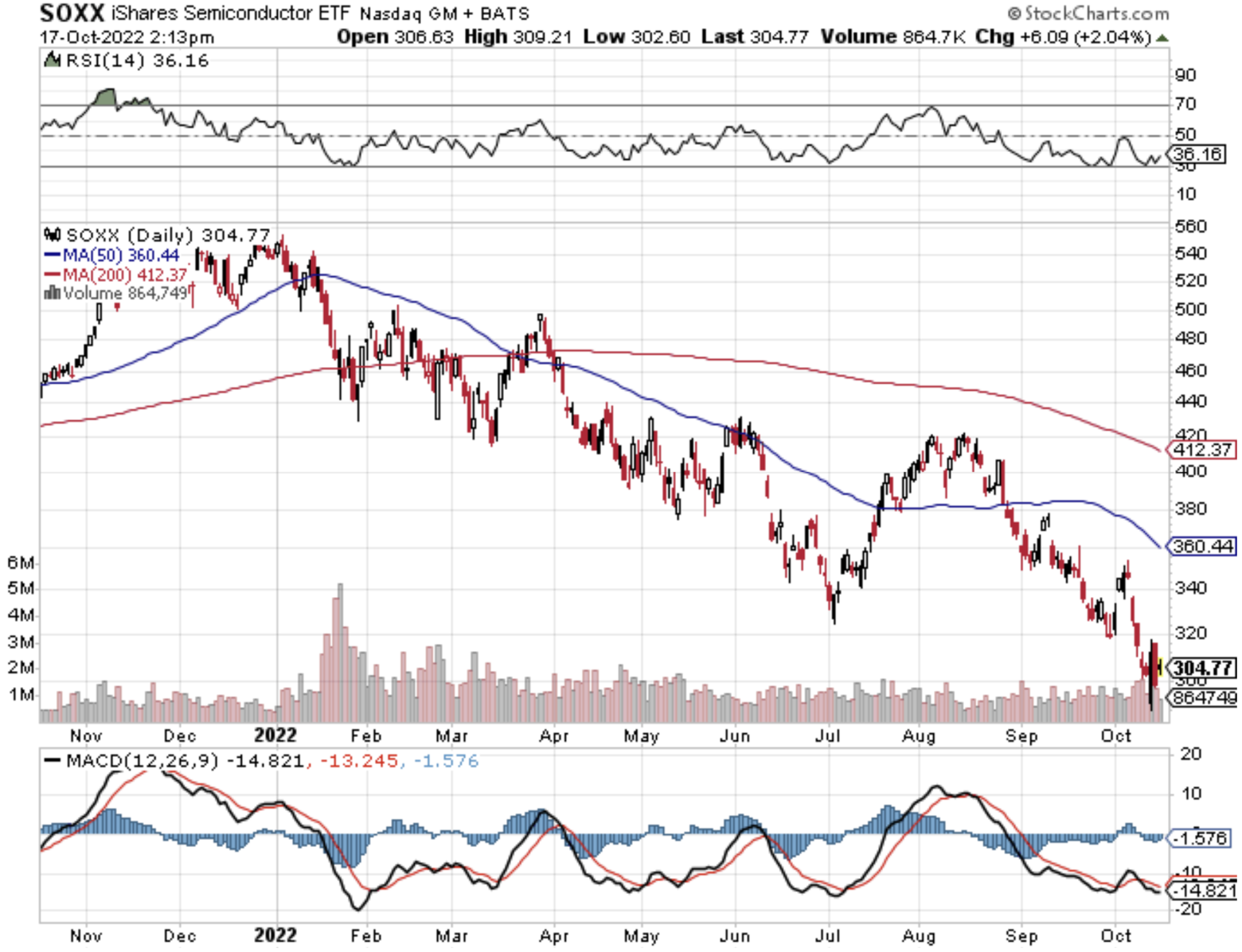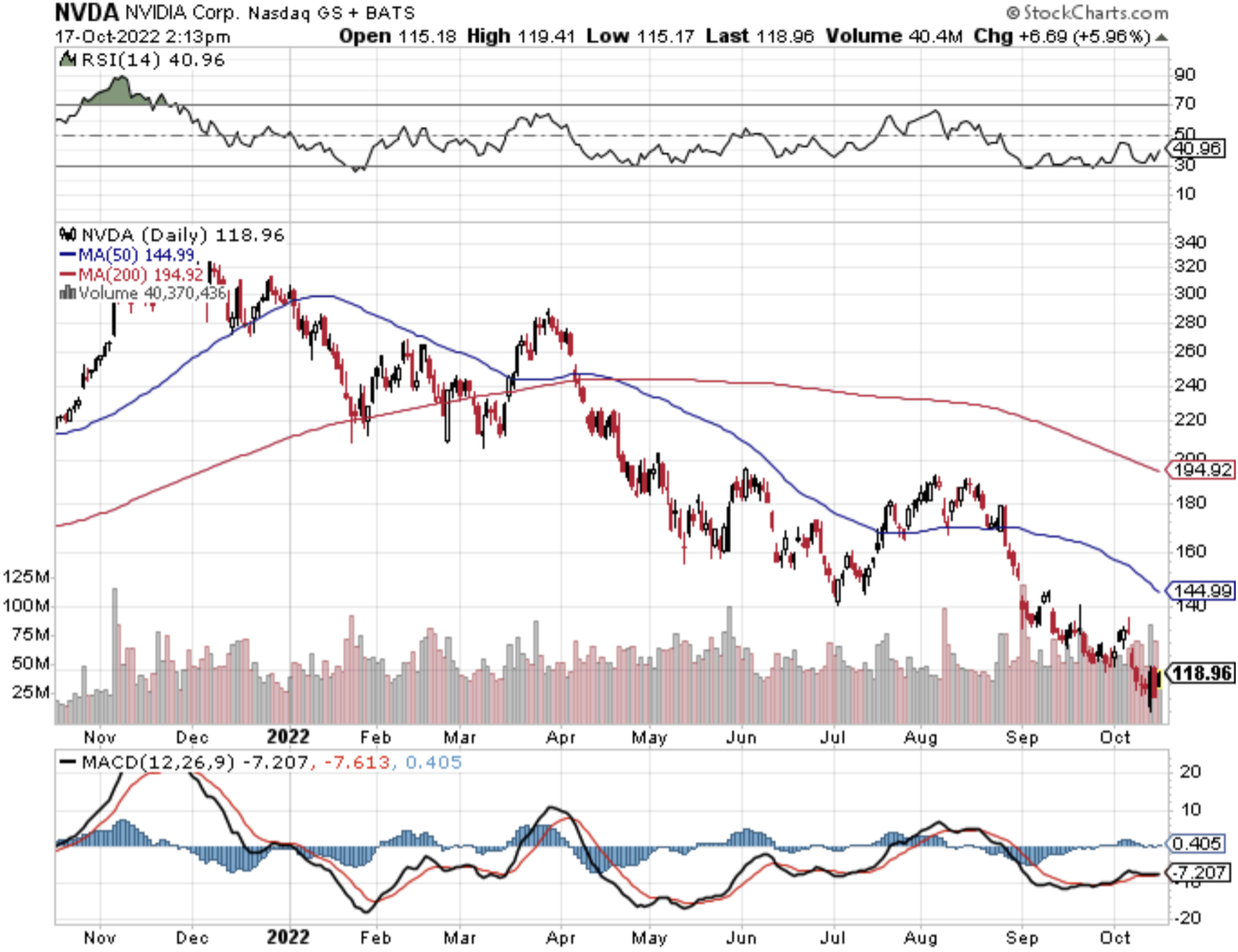The Big Talk
A lot of people haven’t talked about what’s going on in China. Other world events have lessened the focus in the East.
Yet people should be talking about China now.
Authoritarian China is a way bigger deal than what’s happening in the backwaters of Eastern Europe, and I’ll explain.
What on earth could overshadow all of that?
The US administration announced Chinese semiconductor bans, essentially blocking the transfer of intellectual property to China and forcing American executives to quit en masse or face the risk of losing US citizenship.
To say this is escalatory is an understatement.
Remember that previous US president Donald Trump forced the same interests to apply for special licenses, but never ramped up the tension to fever pitch and allowed business to advance.
The result is every American executive and engineer working in China’s semiconductor manufacturing industry resigning, paralyzing Chinese manufacturing overnight.
When combined with a global demand reduction, this is a heavy blow to the short-term prospects of American chip companies (SOXX) that have deep interests in China such as Applied Materials, Intel, Micron (MU), Nvidia (NVDA) and AMD.
US Commerce department also levied a bevy of restrictions on supplying US machinery that’s capable of making advanced semiconductors. It’s going after the types of memory chips and logic components that are at the heart of state-of-the art designs.
For companies with plants in China, including non-US firms, the rules will create additional hurdles and require government signoff.
South Korea’s SK Hynix Inc. is one of the world’s largest makers of memory chips and has facilities in China as part of a supply network that sends components around the world.
The biggest name to be added to the list ban is Yangtze Memory Technologies Co. The memory-chip maker is considered the most successful chip company in China wielding the best technology obviously thanks to American technology.
I found it interesting that at almost the same time, China instructed local resellers to stop selling liquid natural gas (LNG) to Europe as mounting proof China views Europe and America through the same lens.
The rapid escalation means the fragmenting of the United States economy and China will accelerate into the future resulting in the inevitable on-shoring of American chip factories back to the United States which we are already seeing.
Other industries will need to be on-shored back to United States and other friendly countries too.
In the short to mid-term, this means higher costs for the American chip companies as reinvesting into capital projects are a multi-billion dollar proposition.
Also, the pain of losing the large China market hurts badly for the stock and is damaging to the annual revenue outlook.
Expect many revenue downgrades coming down the pipeline.
Inflationary costs is another driver of revenue downgrades too as paying these specialists and keeping the lights on have gotten more expensive.
The chip companies won’t be able to substitute the China demand when we are on the verge of recessions in the United States and Europe.
Ultimately, the infamous boom-bust cycle for the chip stocks will get a more prolonged bust this time around as demand and supply are both painfully reduced.
The boom also will be larger because of coming from a lower cost basis.
However, I would highly doubt a bounce back of any chips stocks in the short-term unless broader market forces drag up stocks which could happen.
We will most likely experience strong bear market rallies met by thundering selloffs.
I would avoid any long term investments into chip companies now and just trade the bounces short-term.





